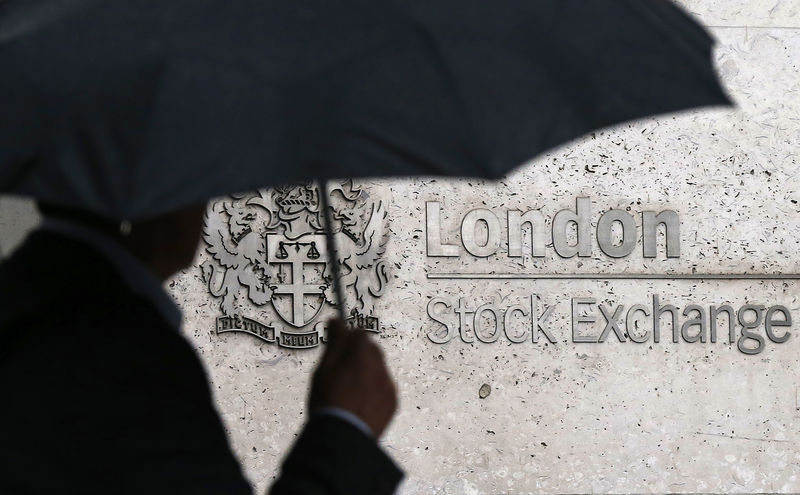(Reuters) - UK shares jumped to their highest in almost a month on Tuesday amid hopes of a U.S.-Sino trade deal and as supermarket chain Tesco led a revival in retailers after upbeat sales data that helped offset Morrisons' disappointing holiday update.
The FTSE 100 (FTSE) was up 1.1 percent at its highest since Dec. 13 at 1148 GMT, and the mid-caps (FTMC) were up 1.2 percent after hitting its loftiest since Dec. 6.
Investors pinned hopes of a possible truce in the protracted trade dispute as U.S. Commerce Secretary Wilbur Ross said overnight the world's two biggest economies could reach a trade deal as talks in the Chinese capital continued.
But uncertainty around the UK's tumultuous divorce from Europe and ahead of a Parliamentary vote next week on a draft deal continued to weigh on sentiment, keeping many investors on the sidelines. Volumes were just 22 percent of the 90-day average daily turnover.
British and European officials are discussing the possibility of extending the formal exit process amid fears that Prime Minister Therea May's deal will not be approved by March 29, The Daily Telegraph reported, citing unidentified sources.
Dispelling some of the Brexit gloom and reinvigorating the battered retail sector was sales data for the critical Christmas period from Nielsen and Kantar Worldpanel.
While the data showed that discount shops Aldi and Lidl gained market share, overall grocery sales in the 12 weeks to Dec. 30 rose 1.6 percent, according to Kantar Worldpanel.
The sector (FTNMX5330) rose 2 percent to its highest since Dec. 7, led by Tesco (L:TSCO) after it chalked up a gain of 0.4 percent in the three months.
The market leader, which will publish its holiday trading update on Thursday, was crowned Xmas winner, Jefferies said.
The data also lifted Next (L:NXT) and Marks & Spencer (L:MKS) more than 4 percent and comes after positive updates from Aldi UK and other high street chains that brought back some appetite for consumer shares and bucked the high street woes.
Still, investors shunned Morrisons (L:MRW), which was at the bottom of the blue chip index and at its lowest since April last year after the UK's No. 4 supermarket chain missed sales forecasts.
"Despite slashing prices left, right and centre, Morrisons remains under pressure from the German discounters," said IG chief market analyst Chris Beauchamp.
"Today's figures do not bode well for the other listed supermarkets. Cutting prices might help boost volumes, but the big firms still look highly vulnerable as Aldi and Lidl continue their expansion."
AIM-listed Footasylum (L:FOOT) also tumbled 16.9 percent to a life low after it cut forecast for the year, blaming challenging Christmas trading and weakening consumer sentiment that led to some of the "most difficult" business conditions in recent years.
On the mid-caps, a positive update from pub operator Greene King (LON:GNK) pushed its shares 5.9 percent higher, while building material supplier SIG (L:SHI) was on track for its worst day in 10 months.
SIG gave up 6.6 percent after lower revenue on the back of a slowdown in construction markets in UK, France and Germany.
Boosting the mid-caps was industrial group Rotork (LON:ROR) that jumped nearly 4.6 percent after a BAML upgrade while Electrocomponents (L:ECM) also rose 6.4 percent as Jefferies and UBS raised rating.
GRAPHICS: UK grocers vs food retail index - https://tmsnrt.rs/2H121Lh

(The story corrects the seventh paragraph to say grocery sales rose 1.6 percent, not 16 percent)